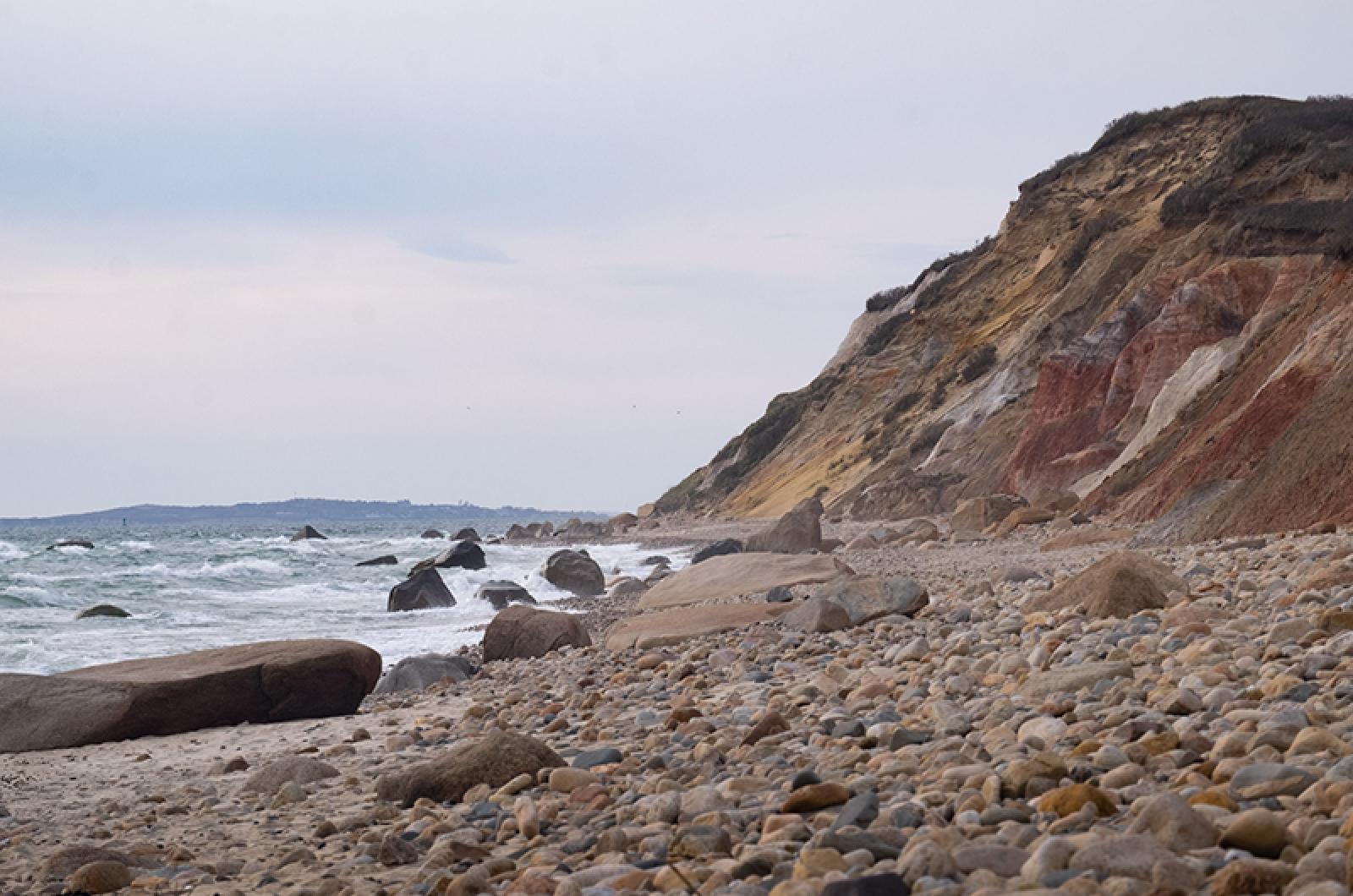As construction remains halted on the site of the proposed Wampanoag bingo hall, the town of Aquinnah and the tribe are back in court sparring over the scope of the court rulings that gave the tribe the right to build a gambling facility.
In a motion filed in U.S. District Court on April 4, attorneys for the town asked the court to clarify that, notwithstanding a higher court ruling giving the tribe the right to build a bingo hall, the tribe needs to obtain a town building permit before beginning construction.
In its response, the tribe contends that the town’s motion is simply another ploy to deny the tribe its sovereign rights.
“The town, acting out of fear, makes bald assertions that the tribe’s actions ‘threatens irreparable harm to the town’s residents, visitors and the natural environment,’ yet the town fails to provide a scintilla of evidence to substantiate its claim,” attorneys for the tribe wrote in an April 18 response.
The issue has been scheduled for a May 20 hearing in Boston before U.S. District Judge F. Dennis Saylor 4th, whose 2015 decision denying the tribe the right to build a class II gambling facility was later overturned by the First Circuit Court of Appeals. The case was sent back to the district court for final judgment consistent with its decision, and the parties are now arguing over what the scope of that final judgment should be.
After the U.S. Supreme Court declined to review the case, the tribe brought in heavy machinery in late February and began clearing about four acres of land just off of State and Black Brook roads in Aquinnah. In a press release, tribal chairman Cheryl Andrews-Maltais announced the construction of a 10,000-square-foot facility that would include 250 electronic games and food trucks, saying building work would begin in March.
The press release prompted a sharp exchange of letters between the tribe and the town, with the town requesting that the tribe halt construction on the project. The town also asked the Martha’s Vineyard Commission to review the project as a development of regional impact. The tribe pushed back against both requests, claiming that their victory in court gave them full authority to proceed without local building permits.
Work at the site came to halt shortly thereafter, and the tribe, in a footnote in its opposing response, suggests that the pause in construction dates back to their loss of electricity on the property.
In mid-March, a spokesman for Eversource confirmed the company had removed what it called an illegal wire service that a private electrician had connected on the property, saying that the town never received a permit for the work. As of Tuesday, Eversource had not yet reconnected the wire, said Reid Lamberty, a spokesman for the company.
Aquinnah town wire inspector David Schwab said he has gone to the property multiple times to complete the inspection, but the gates have been locked with warnings against trespassers.
“I went to do their inspection a bunch of times, but the gate was locked every time,” Mr. Schwab said. “I made a phone call to the electrician, and the electrician said the tribe was getting their own inspector. That’s what I was told and that’s where it stood since.”
Mr. Schwab said town wire inspectors have to be approved by the state of Massachusetts.
In court documents, the tribe called the disconnected wire issue “an end-run” on tribal jurisdiction.
“The tribe has been deprived of electricity to continue construction, which is integral to the tribe being able to offer gaming on its Indian lands,” the footnote reads in part.
The town of Aquinnah’s court motion and a supporting memo from the Aquinnah-Gay Head Community Association outlines additional concerns with the project. They claim that while the appellate court affirmed the tribe’s right to construct a bingo hall, it did not address other parts of the district court decision that found the town retained jurisdiction over building permits and other issues.
“The tribe appears to be treating its victory in the First Circuit as allowing it to commence casino construction, despite this court’s order on the building-permit issues, despite the non-gaming local laws and regulations to which it is subject, and despite the public health, public safety, and environmental implications of the tribe’s contemplated gaming operation,” the town’s memorandum reads in part.
But the tribe asserts that town’s interpretation is an effort to thwart its ability to construct the gaming hall.
“Despite having lost at the First Circuit, the town, based upon its unfounded fear of an Indian tribe engaging in commercial activities to improve its economic condition and the conditions of its tribal members, now asks this court to put the town in a position of being able to interfere with or prevent the tribe from exercising its sovereign right to govern gaming activities on the land,” the memorandum reads in part.







Comments (5)
Comments
Comment policy »